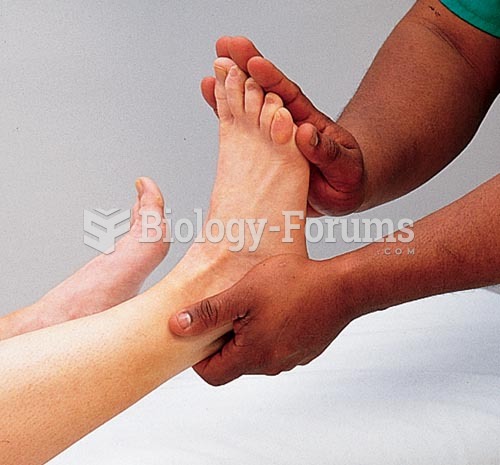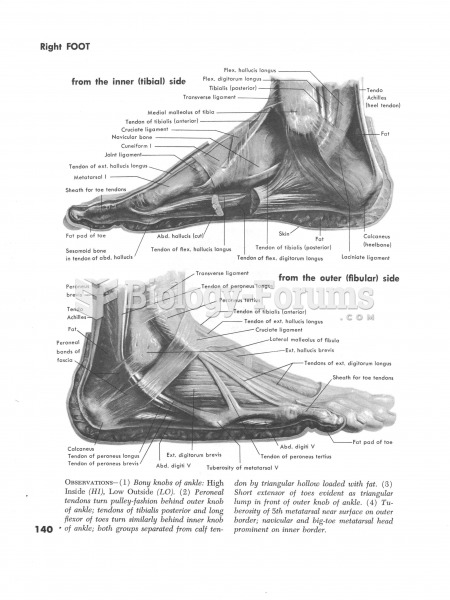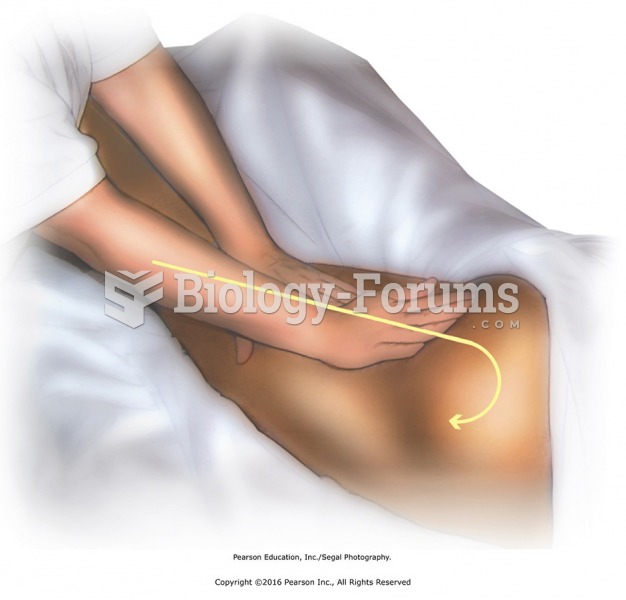|
|
|
An identified risk factor for osteoporosis is the intake of excessive amounts of vitamin A. Dietary intake of approximately double the recommended daily amount of vitamin A, by women, has been shown to reduce bone mineral density and increase the chances for hip fractures compared with women who consumed the recommended daily amount (or less) of vitamin A.
On average, the stomach produces 2 L of hydrochloric acid per day.
Hippocrates noted that blood separates into four differently colored liquids when removed from the body and examined: a pure red liquid mixed with white liquid material with a yellow-colored froth at the top and a black substance that settles underneath; he named these the four humors (for blood, phlegm, yellow bile, and black bile).
If you could remove all of your skin, it would weigh up to 5 pounds.
Cytomegalovirus affects nearly the same amount of newborns every year as Down syndrome.
 Peripheral veins used in intravenous therapy; A, forearm; B, dorsum of the hand; C, dorsal plexus of
Peripheral veins used in intravenous therapy; A, forearm; B, dorsum of the hand; C, dorsal plexus of
 This five-wire mass air flow sensor consists of a metal foil sensing unit, an intake air temperature ...
This five-wire mass air flow sensor consists of a metal foil sensing unit, an intake air temperature ...





